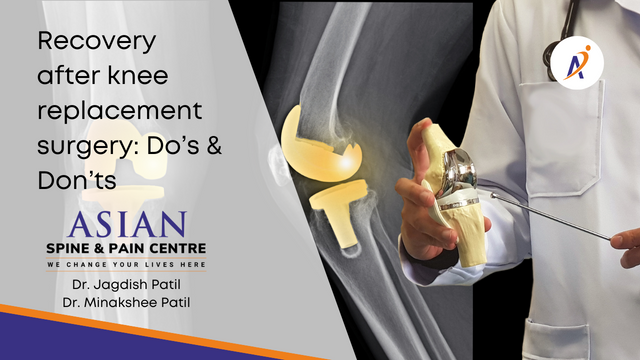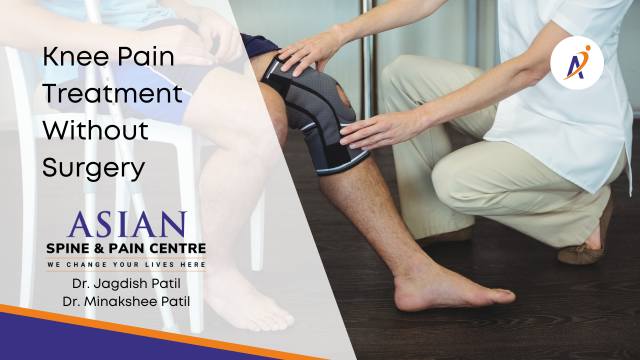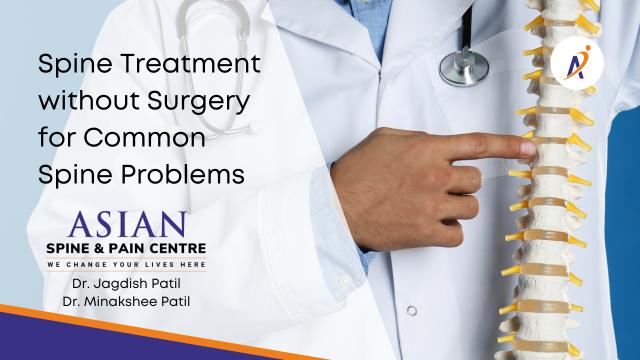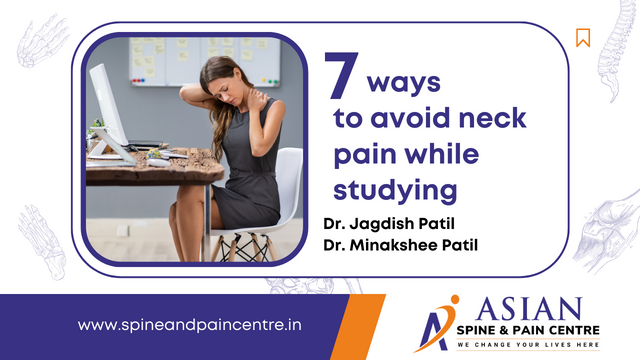Dr. Jagdish Patil & Dr. Minakshee Patil provides spine treatment without Surgery for common spine problems like spinal stenosis, herniated disc, sciatica, arthritis in Pune.
Knee replacement surgery, also known as arthroplasty, involves using plastic or metal components to replace damaged sections of the knee that cause pain and discomfort. As a result, surgeons can restore knee cushioning and assist patients in walking and performing other tasks comfortably.
While osteoarthritis and age-related concerns are the most prevalent reasons for undergoing knee replacement surgery, rheumatoid arthritis, knee abnormalities, or serious knee traumas may also be considered for the surgery. Surgeons may propose whole or partial knee replacement surgery depending on the problem.
Why recovery phase is so important after knee replacement surgery?
From the initial appointment with specialists through the final days of recovery, the patient’s medical journey can be difficult and daunting. Although the surgery will be in the hands of orthopedic surgeons, the healing process demands the patient’s and their family members’ assistance and cooperation. As a result, understanding what happens following a knee replacement surgery and what can be done to promote a rapid recovery is crucial. So, recovery phase is as important as surgery itself.
What are the dos of recovery phase after knee replacement surgery?
- Take proper rest: Patients must fight the desire to get up and resume normal activities until the knee recovers completely. Rest is essential for healing to occur within the time range planned. Long periods of sleeping or sitting are also not advised.
- Do cold therapy: The recuperation process after knee replacement surgery is slow, and patients frequently endure discomfort and swelling in the operated area. Using cold packs many times a day might help reduce swelling.
- Weight management & diet: Because the knees are the body’s primary weight-bearing joints, body weight is an important factor in affecting recovery time. Patients who spend a lot of time in bed after surgery may gain weight. More weight implies that the knees must bear more weight, which can put a lot of strain on the operated area. As a result, patients must keep a close eye on their weight, exercise often, and eat a nutritious diet.
- Physiotherapy & Exercises: Physiotherapy sessions after knee replacement surgery are very important. As right type of exercise and joint movements will ensure healthy recovery and will eventually help in starting routine walking.
- Visit surgeons for follow-up: Patients must consult their surgeons regularly and visit them at least once or twice a month to monitor their recovery progress. Such visits will determine whether or not there are any problems with the knee and, thus, prevent any problems in the future.
What are the dos of recovery phase after knee replacement surgery?
- Don’t neglect wound: Any wound infection at the operation site can be deadly. Do not ignore any pus, oozing and swelling at the site of wound. Infection can delay your post knee replacement recovery drastically.
- Don’t stress: Any physical stress or strenuous activity like trekking, long distance running or cycling, contact sports should be avoided for at least 6-8 months. Later start these activities only with doctors’ consultation.
- Don’t schedule surgery on same site: Avoid any invasive treatment on the knee which has undergone replacement surgery. Repeated injury to surrounding tissue will hamper recovery of the joint.
What is the success rate of knee replacement surgery?
More than 95% of patients get full range of movement after knee replacement surgery. And these implants can last even more than 20 years.
Where can you get best knee replacement surgery in Pune?
Dr. Jagdish Patil of Asian Spine & Pain Centre is one of the best joint replacement surgeons in India. His more than ten years of experience and surgery skills will provide the best results. At Asian Spine & Pain Centre before any surgical intervention, a complete analysis of joint is conducted and depending upon the severity of the problem noninvasive or invasive approach of the treatment is decided.
What is normal recovery time of knee replacement surgery?
It depends on the age of the patient and associated morbidities as well. Most patients will recover in 6 to 10 weeks from the operation.
Where can you get best care after knee replacement surgery?
At Asian Spine & Pain Centre, Pune, we provide excellent physiotherapy services along with best guidance from the doctors to recover well & fast.
Although recovery after knee replacement surgery can be protracted and difficult, it allows people to walk and move around without pain or suffering. Proper care and medical advice, together with strong social support, can help with the adjustment to everyday routine.
Asian Spine & Pain Centre is one of the leading clinics in India for knee replacement and offers patients all forms of medical and surgical aid throughout their medical journey. Get in touch with our orthopedic surgeon, Dr. Jagdish Patil here for more information on knee replacement surgery.
Asian Spine & Pain Centre
We change your lives here!
Asian
Spine And Pain Centre
Asian Spine And Pain Centre
We change your lives here!
Dr. Jagdish Patil
M.B.B.S., M.S.(Orth), FIIPM, FIMISS
Endoscopic Spine & Joint Replacement Surgeon
Pain management Expert
Dr. Minakshee Patil
M.B.B.S., M.D., FPCI, FIPM
Interventional Pain Management Expert
Latest articles
Dr. Jagdish Patil & Dr. Minakshee Patil provides spine treatment without Surgery for common spine problems like spinal stenosis, herniated disc, sciatica, arthritis in Pune.
Follow these 7 simple steps suggested by best pain management expert, Dr. Jagdish Patil, to avoid neck pain while studying long hours.
“World Class Super Speciality Centre for Spine, Joints, Pain & Regenerative Therapies”
Let's Connect
+91-7218113113
Main Clinic
304, 3rd Floor, Choice ‘C’ Apartment, Opp. Millennium Star building, Near Ruby Hall Clinic, Pune 411001.
Send A Mail
Our facilities
Physiotherapy
Procedure Room
Pharmacy
X-ray & Imaging room
Emergency Care
Online Consultancy
FAQs:
Yes, in more than 90% cases with chronic knee pain, a noninvasive or minimal invasive procedures can be used to avoid surgeries. But in 10% cases, surgery is unavoidable and can provide long term benefit. So trust our experts at Asian Spine & pain Centre to provide accurate diagnosis and pain management treatment for your chronic knee pain.
The goal / aim of sports medicine is to maintain, sustain, and at times to regain peak physical fitness i.e., adaptability to stress, physical and mental. Main functions of sports medicine are promotive, educative, formative, recreative, competitive, therapeutic and rehabilitative in nature. At Asian Spine & Pain Centre, we provide complete care of sport sports injuries for athletes in Pune.
Yes, in most cases, physiotherapy is must to regain complete joint mobility and muscular strength. It can be required after any orthopedic treatment either surgical or non-surgical. At Asian Spine & pain Centre, we have a tea, of experienced physiotherapists to provide complete care.
You might have serious back problem or emergency for which you need immediate orthopedic care. Following signs can help you to identify these serious situations – Sharp pain rather than a dull ache, Radiating pain, Sudden weakness in the legs, incontinence, numbness or needle like pain in the groin.
Yes. X-rays are often a good tool for determining if arthritis exists and, specifically, what type. Common types of arthritis include rheumatoid arthritis, psoriatic arthritis, and osteoarthritis. Early in the disease process, more sophisticated imaging may be necessary, especially MRI. We do provide X-ray imaging services at Asian Spine & Pain Centre.
If you’re experiencing chronic pain, a doctor may recommend that you have a nerve block, a temporary or permanent procedure that disrupts specific nerve activity. It can help diagnose or treat certain types of neuropathic pain, or pain caused by nerve dysfunction or damage. At Asian Spine & pain centre, we use nerve block therapy in selected cases of chronic pain.
As is often the case, recovery time can vary from person to person depending on the location of the surgery, the type of surgery required and the lifestyle of the patient. However, most patients are able to leave the hospital the same day and are typically able to return to their active lives within 4-6 weeks after surgery. However, some are back to normal in 1-2 weeks.
You shouldn’t downhill ski or play contact sports such as football and soccer. In general, avoid sports that require jerking, twisting, pulling, or running. You should be able to do lower-impact activities, such as hiking, gardening, swimming, playing tennis, and golfing.
Arthroscopy is a procedure for diagnosing and treating joint problems. A surgeon inserts a narrow tube attached to a fiber-optic video camera through a small incision — about the size of a buttonhole. The view inside your joint is transmitted to a high-definition video monitor. Arthroscopy allows the surgeon to see inside your joint without making a large incision. Surgeons can even repair some types of joint damage during arthroscopy, with pencil-thin surgical instruments inserted through additional small incisions.




